St Columbanus was quite the rambler – did you know? The 6th century Irish missionary was born in Leinster and educated in Fermanagh and Bangor before making his way through France, the Alps and then Italy where he lived out the rest of his days. Throughout his travels, he established three major monasteries (which acted as schools) and taught his classes with the Celtic influence of his Irish roots.
Today, adventurous souls can literally travel in the Saint’s footsteps, via the Columban Way trail (or the Via Columbani). This trail is broken up into nine different legs and takes you through much of Western Europe. However, its starting point is arguably the most special.
It is where St Columbanus was thought to be born, in the shadow of Mount Leinster, near the village of Myshall. Here, in Co Carlow, you can walk a portion of the Irish leg of the Columban Way. This leg goes from Nine Stones on Mount Leinster and follows a 45km trail through Co Carlow, to the border of Co Kildare.
Eventually, as the Irish trail continues to develop, it will lead through counties Kildare, Laois, Meath, Cavan, Monaghan and Fermanagh before ending in Bangor, Co Down (where Columbanus set sail for France).
Historic significance
The Irish leg will take visitors on a route St Columbanus might well have taken himself, with pit stops along the way featuring monastic and spiritual locations he may have visited. Of course, you don’t need to have a keen interest in religion or history to enjoy the Columban Way – it is also just a great way to see the country and appreciate nature.
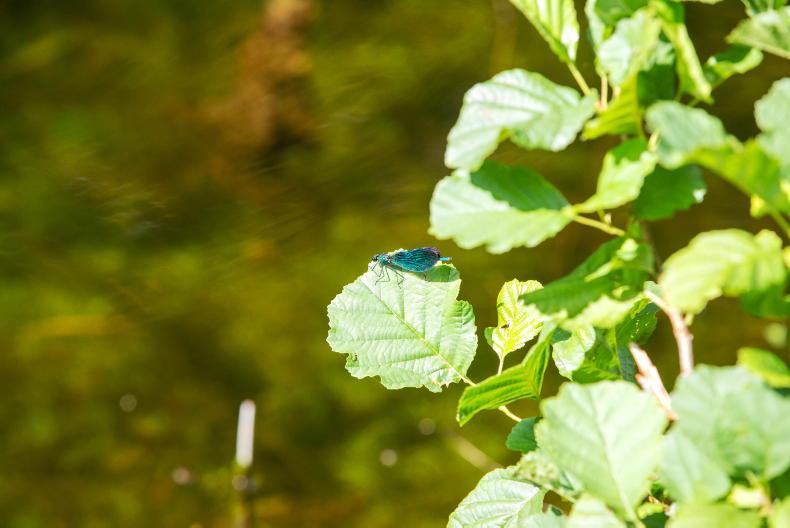
\ Claire Nash
Currently, the routes around Bangor in Co Down and in counties Carlow and Wexford (which feature two feeder routes into the Carlow trail) are fully signposted and ready for visitors to explore. Once completed, the Columban Way in Ireland will stretch a full 530km across the country. For Carlow County Council and Carlow Tourism, along with their community partners the Columban Missionaries and Myshall Muintir na Tire, the introduction of the trail - and their efforts are being seen and felt in the region; with a large increase in visitors to the area.
Guided walks
I recently visited the Blackstairs region of Co Carlow, where I walked a portion of the Columban Way. My walk was led by local business owner and nature enthusiast Mary White. Mary owns and operates Blackstairs Ecotrails, an eco-tourism accommodation site in the mountains outside the town of Borris. Aside from running her accommodation, Mary also leads groups on nature and foraging walks.
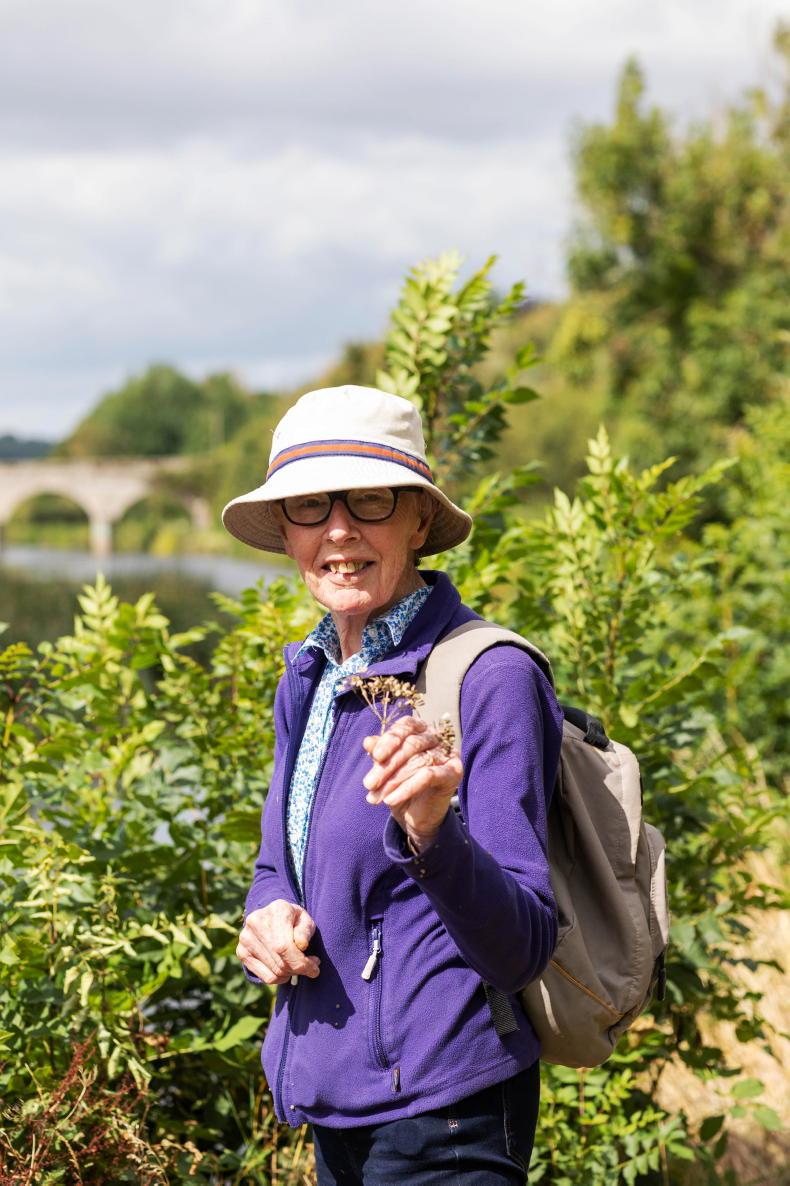
Mary White owns local accommodation Blackstairs Ecotrails and takes groups on nature and foraging walks. \ Claire Nash
She says the Columban Way is a really exciting new initiative for those interested in eco-tourism.
“It has the potential to support all our rural villages in terms of local tourism initiatives, food and drink establishments and above all, a warm welcome from local people to future guests and walkers.”

\ Claire Nash
Mary and her husband are no strangers to pilgrimages. They are seasoned hikers; having most recently completed a 1200km-long trek from Rome to Switzerland. She tells Irish Country Living that she and her husband have been taking “walking holidays” for more than forty years.
“Why do we do it? There is nothing more meditative, exhilarating and satisfying than putting one foot in front of the other,” she says. “The peacefulness, the sense of satisfaction, the well-being is unparalleled. You don’t think of the distance, you get into a rhythm of simply walking day after day.
“At Blackstairs Ecotrails we have already noticed an interest in the Columban Way,” she continues. “An increase in walkers enquiring about the new walk and an increase in walkers beginning to undertake the Carlow leg of this historic route.”
Eco-tourism
Mary believes that sustainable tourism is the only way forward for Co Carlow. Guided walks and tours are a great way to see the country but we don’t always realise they can also help ensure the environment is left in as pristine a condition as possible.
“Communities wishing to develop tourism have to be mindful of our local biodiversity, which is so fragile, and we have to protect our eco-systems,” she says. “The quick fix of sticking up a sign outside a house saying ‘Bed and Breakfast’ won’t cut the mustard, now. Guests have a huge awareness of the environment and the threat of climate change. They are looking for an authentic, sustainable place to stay. [They have] an awareness of the environment and are very conscious of litter in the countryside, the burning of vegetation and inappropriate cutting of hedges.
“We need to develop a sustainable tourism policy in Carlow where we all are conscious of the threat to our biodiversity and our eco-systems and on which a vibrant tourism industry can develop in tandem,” she adds.
Blackstairs Farming Futures
Local farmer and chair of the Blackstairs Farming Group, Martin Shannon, agrees with Mary. Over the past five years, the group has been in receipt of European funding to complete a project entitled Blackstairs Farming Futures. Among the project’s goals – which include creating commonage governance and developing a results-based agri environmental payment scheme – is the aim to manage habitats for red grouse and protect the biodiversity around the mountains.
Martin tells Irish Country Living that the farming group feel they could do much more for the region with more Government investment.
“We’re modelled off the Burren Life [Project],” he explains. “This is our last year and, at the moment, we have about 148 farmers. There’s about 44 commonage areas in the Blackstairs. The scheme has been successful in terms of creating commonage groups that come together and work together to eradicate the bracken [on the mountains], which is a massive undertaking. If we had been funded further, we’d have gone into it further.”
Local engagement
Martin farms sucklers and sheep with his wife, Mary and their daughter, Paula. Community engagement was a big part of the Blackstairs Farming Futures project and the farming members have been open to tourists and hikers making use of the mountain trails and enjoying nature. However, when trails are unmarked and un-managed, environmental and logistical problems can occur.
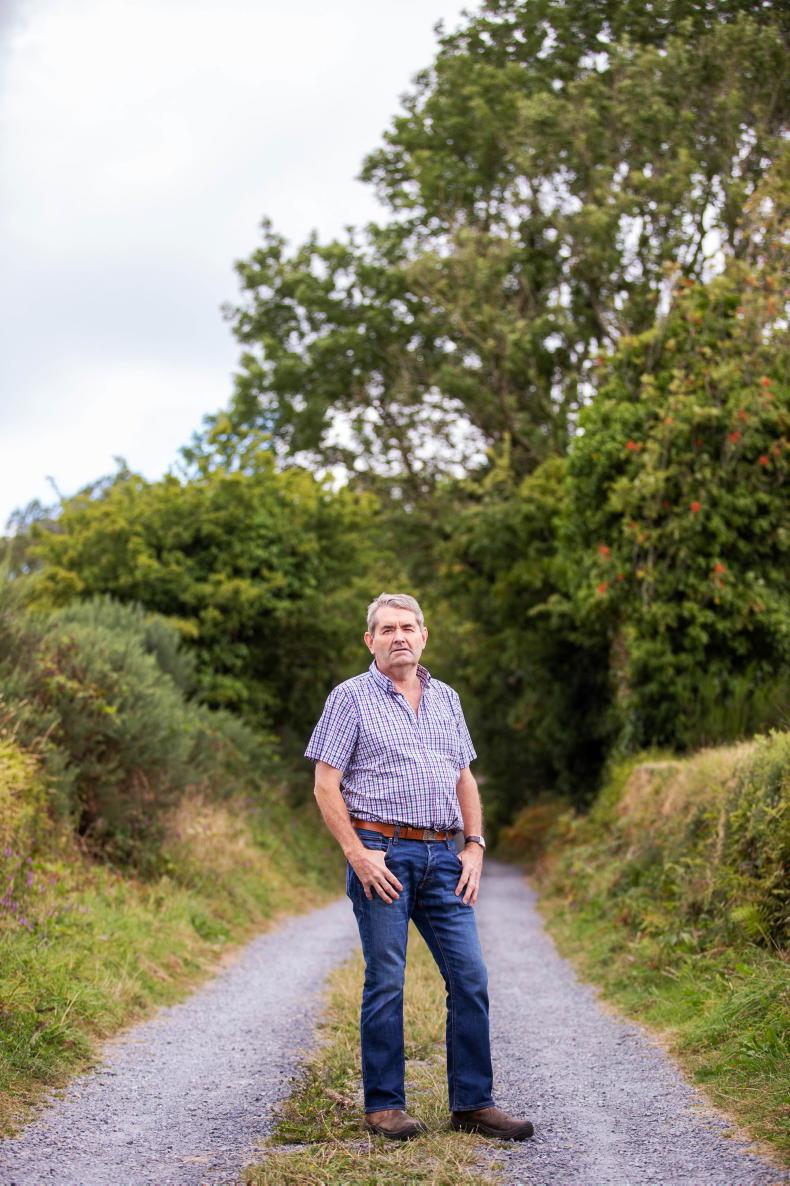
Local farmer and chair of the Blackstairs Farming Group, Martin Shannon. / Claire Nash
Carlow County Council and Carlow Tourism launched the Columban Way by linking in with the demand for slow and sustainable tourism – to enable visitors to connect with nature and appreciate the biodiversity on offer in the region. Martin feels the county council should continue this work by creating infrastructure to support the increase in visitors to the Blackstairs.
“When we first started [the Blackstairs Farming Futures project], no one knew where the Blackstairs was,” he says. “But now the awareness is big and since COVID, walkers from all parts of Ireland have started to come. Some facilities will need to be put in place.”
“There needs to be regulation put in for farmers to keep working on the mountain; they need to be paid for that,” he adds. “I’m farming my whole life and it takes a lifetime to build up. It costs money and time and it’s a vocation, really, and a way of life, as well. We’re not looking for recognition, but if people are serious about habitats and biodiversity, there needs to be funding for that and there needs to be farmer input.”
https://carlowtourism.com/thecolumbanway/
Read more
‘A lot of people say the dried flowers remind them of their granny’
Cliff Reid's life and career on Ireland's midland waterways
St Columbanus was quite the rambler – did you know? The 6th century Irish missionary was born in Leinster and educated in Fermanagh and Bangor before making his way through France, the Alps and then Italy where he lived out the rest of his days. Throughout his travels, he established three major monasteries (which acted as schools) and taught his classes with the Celtic influence of his Irish roots.
Today, adventurous souls can literally travel in the Saint’s footsteps, via the Columban Way trail (or the Via Columbani). This trail is broken up into nine different legs and takes you through much of Western Europe. However, its starting point is arguably the most special.
It is where St Columbanus was thought to be born, in the shadow of Mount Leinster, near the village of Myshall. Here, in Co Carlow, you can walk a portion of the Irish leg of the Columban Way. This leg goes from Nine Stones on Mount Leinster and follows a 45km trail through Co Carlow, to the border of Co Kildare.
Eventually, as the Irish trail continues to develop, it will lead through counties Kildare, Laois, Meath, Cavan, Monaghan and Fermanagh before ending in Bangor, Co Down (where Columbanus set sail for France).
Historic significance
The Irish leg will take visitors on a route St Columbanus might well have taken himself, with pit stops along the way featuring monastic and spiritual locations he may have visited. Of course, you don’t need to have a keen interest in religion or history to enjoy the Columban Way – it is also just a great way to see the country and appreciate nature.

\ Claire Nash
Currently, the routes around Bangor in Co Down and in counties Carlow and Wexford (which feature two feeder routes into the Carlow trail) are fully signposted and ready for visitors to explore. Once completed, the Columban Way in Ireland will stretch a full 530km across the country. For Carlow County Council and Carlow Tourism, along with their community partners the Columban Missionaries and Myshall Muintir na Tire, the introduction of the trail - and their efforts are being seen and felt in the region; with a large increase in visitors to the area.
Guided walks
I recently visited the Blackstairs region of Co Carlow, where I walked a portion of the Columban Way. My walk was led by local business owner and nature enthusiast Mary White. Mary owns and operates Blackstairs Ecotrails, an eco-tourism accommodation site in the mountains outside the town of Borris. Aside from running her accommodation, Mary also leads groups on nature and foraging walks.

Mary White owns local accommodation Blackstairs Ecotrails and takes groups on nature and foraging walks. \ Claire Nash
She says the Columban Way is a really exciting new initiative for those interested in eco-tourism.
“It has the potential to support all our rural villages in terms of local tourism initiatives, food and drink establishments and above all, a warm welcome from local people to future guests and walkers.”

\ Claire Nash
Mary and her husband are no strangers to pilgrimages. They are seasoned hikers; having most recently completed a 1200km-long trek from Rome to Switzerland. She tells Irish Country Living that she and her husband have been taking “walking holidays” for more than forty years.
“Why do we do it? There is nothing more meditative, exhilarating and satisfying than putting one foot in front of the other,” she says. “The peacefulness, the sense of satisfaction, the well-being is unparalleled. You don’t think of the distance, you get into a rhythm of simply walking day after day.
“At Blackstairs Ecotrails we have already noticed an interest in the Columban Way,” she continues. “An increase in walkers enquiring about the new walk and an increase in walkers beginning to undertake the Carlow leg of this historic route.”
Eco-tourism
Mary believes that sustainable tourism is the only way forward for Co Carlow. Guided walks and tours are a great way to see the country but we don’t always realise they can also help ensure the environment is left in as pristine a condition as possible.
“Communities wishing to develop tourism have to be mindful of our local biodiversity, which is so fragile, and we have to protect our eco-systems,” she says. “The quick fix of sticking up a sign outside a house saying ‘Bed and Breakfast’ won’t cut the mustard, now. Guests have a huge awareness of the environment and the threat of climate change. They are looking for an authentic, sustainable place to stay. [They have] an awareness of the environment and are very conscious of litter in the countryside, the burning of vegetation and inappropriate cutting of hedges.
“We need to develop a sustainable tourism policy in Carlow where we all are conscious of the threat to our biodiversity and our eco-systems and on which a vibrant tourism industry can develop in tandem,” she adds.
Blackstairs Farming Futures
Local farmer and chair of the Blackstairs Farming Group, Martin Shannon, agrees with Mary. Over the past five years, the group has been in receipt of European funding to complete a project entitled Blackstairs Farming Futures. Among the project’s goals – which include creating commonage governance and developing a results-based agri environmental payment scheme – is the aim to manage habitats for red grouse and protect the biodiversity around the mountains.
Martin tells Irish Country Living that the farming group feel they could do much more for the region with more Government investment.
“We’re modelled off the Burren Life [Project],” he explains. “This is our last year and, at the moment, we have about 148 farmers. There’s about 44 commonage areas in the Blackstairs. The scheme has been successful in terms of creating commonage groups that come together and work together to eradicate the bracken [on the mountains], which is a massive undertaking. If we had been funded further, we’d have gone into it further.”
Local engagement
Martin farms sucklers and sheep with his wife, Mary and their daughter, Paula. Community engagement was a big part of the Blackstairs Farming Futures project and the farming members have been open to tourists and hikers making use of the mountain trails and enjoying nature. However, when trails are unmarked and un-managed, environmental and logistical problems can occur.

Local farmer and chair of the Blackstairs Farming Group, Martin Shannon. / Claire Nash
Carlow County Council and Carlow Tourism launched the Columban Way by linking in with the demand for slow and sustainable tourism – to enable visitors to connect with nature and appreciate the biodiversity on offer in the region. Martin feels the county council should continue this work by creating infrastructure to support the increase in visitors to the Blackstairs.
“When we first started [the Blackstairs Farming Futures project], no one knew where the Blackstairs was,” he says. “But now the awareness is big and since COVID, walkers from all parts of Ireland have started to come. Some facilities will need to be put in place.”
“There needs to be regulation put in for farmers to keep working on the mountain; they need to be paid for that,” he adds. “I’m farming my whole life and it takes a lifetime to build up. It costs money and time and it’s a vocation, really, and a way of life, as well. We’re not looking for recognition, but if people are serious about habitats and biodiversity, there needs to be funding for that and there needs to be farmer input.”
https://carlowtourism.com/thecolumbanway/
Read more
‘A lot of people say the dried flowers remind them of their granny’
Cliff Reid's life and career on Ireland's midland waterways








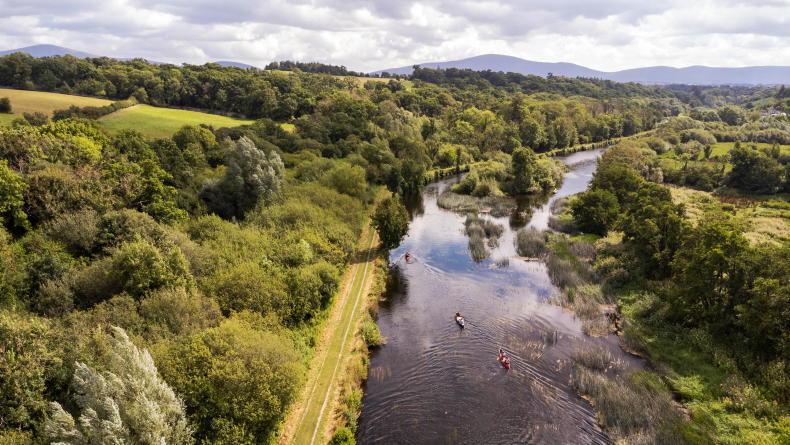
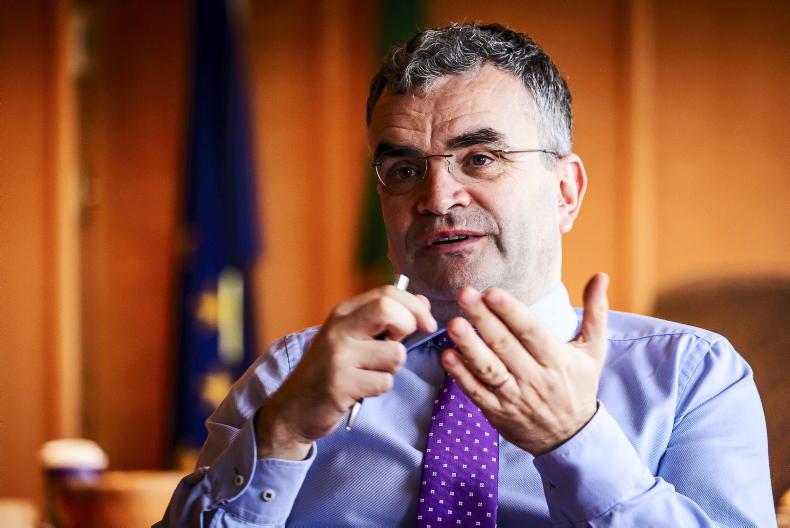

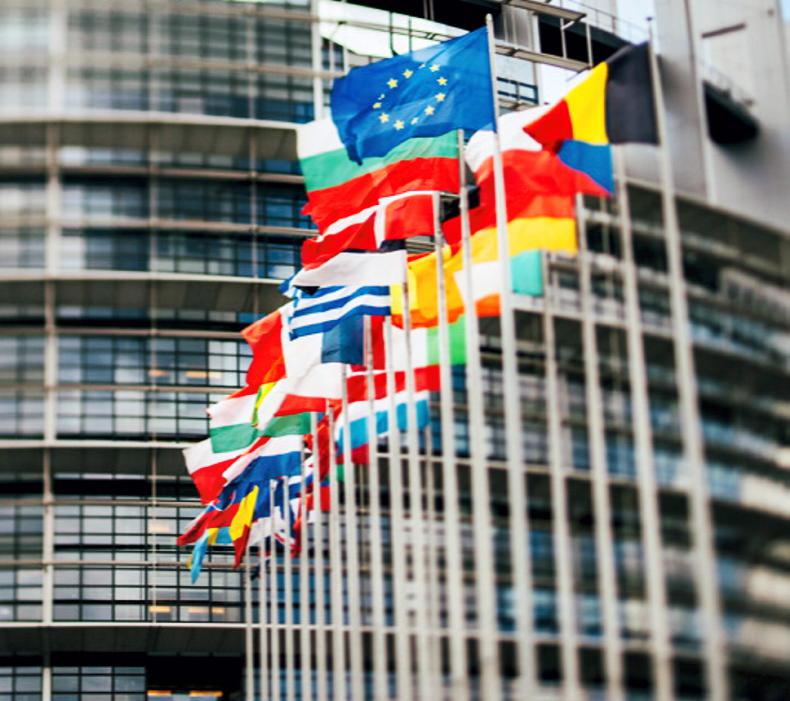
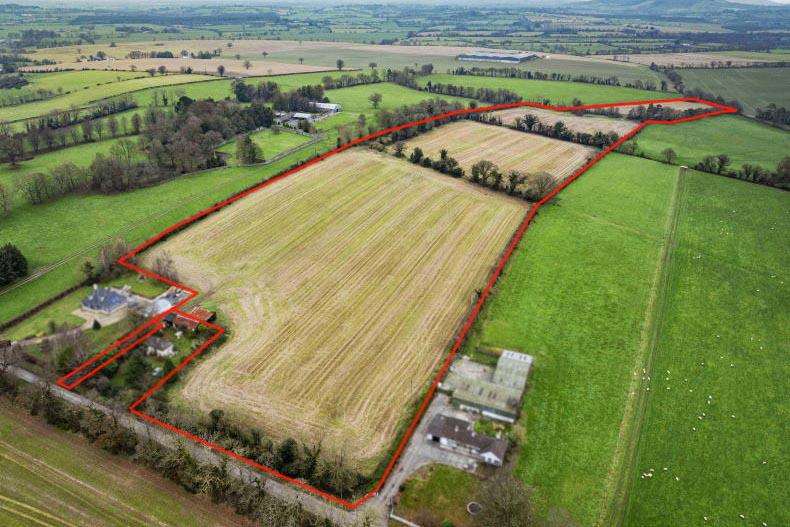
SHARING OPTIONS